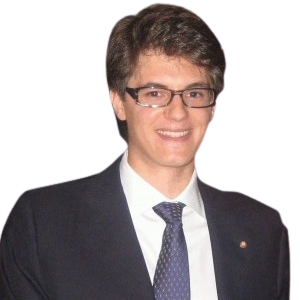ZUG, Switzerland — December 5, 2023 — A network of companies in the textile supply chain established in Biella in 2022, MagnoLab specializes in research activities for product innovation and circular economy solutions. The project was initiated by six textile companies: Marchi & Fildi S.p.A., Filidea S.r.l., DBT Fibre S.p.A., Di.Vè S.p.A., Maglificio Maggia S.r.l. and Tintoria Finissaggio 2000 S.r.l., later joined by De Martini S.p.A. and Pinter Group.

Datatex: Good morning Dr. Marchi, there has been a lot of talk in recent months among textile industry insiders and professionals about the new MagnoLab project. What are the strengths of this ambitious programme?
Dr. Marchi: MagnoLab is a network of companies that we founded in Biella in 2022, starting with six member companies. The fulcrum of the project is a cutting-edge textile research centre, which we opened in Biella and which to date is unique worldwide, because it is equipped with a fleet of textile machines that are used exclusively for research and development purposes, with an integrated supply chain on an industrial scale and not purely laboratory.
Datatex: What are the main objectives of the research program carried out within MagnoLab?
Dr. Marchi: There are essentially three aims:
- INNOVATION: the development of new innovative textile products and processes, with the strong involvement of schools, young people and the world of research and technical training;
- THE CIRCULAR ECONOMY: the research and development of new textile products derived from recycled materials.
- SUPPORT FOR THE WORLD OF TECHNICAL TRAINING.
Datatex: How important is the circular economy theme in the textile world today?
Dr. Marchi: I would say that it is a fundamental and unavoidable theme, for ethical reasons and also for a very concrete reason: from 2025 onwards, the obligation of separate collection of textile products will come into force at European level, i.e. all European citizens will have to get used – when they sort their daily waste at home – to using a new ‘textile bin’, in which to place the clothes they no longer intend to use. There will be a lot of material to recycle and companies cannot be unprepared. The search for new products and new recycling methods in the textile chain will soon be the most important issue for the sector
Datatex: When and how did the idea for the MagnoLab project come about?
Dr. Marchi: It was born a few years ago, in 2017 to be precise, from a trip to Silicon Valley with a group of young textile entrepreneurs from Biella. In Silicon Valley, we got to know several start-ups and innovative companies up close, and later visited a major university textile research centre in Tel Aviv, Israel, and a large academic textile laboratory and research centre in Sweden.
The question we asked ourselves as entrepreneurs — as a result of these trips — was this: how is it possible that in Italy — the home of fashion — there is no major centre at the forefront of textile research and innovation? And also: is it possible to open such a research centre but with an industrial connotation and not — as we have seen elsewhere — merely laboratory and academic?
We answered these questions by opening MagnoLab.
Datatex: How much money have you invested in the MagnoLab project?
Dr. Marchi: Overall, the investment to date has been 12 million euros, of which 7.3 million put in by us and 4.7 million approved as public funding under the PNRR (National Recovery and Resilience Plan), which is the programme through which the Italian government manages Next Generation Eu funds.
It is also fair to point out, in this regard, that the funding came later: we had already decided on the investments, and we would have continued the project even without public support. That said, in the PNRR call for proposals for the circular economy and recycling, we ranked first in Italy, achieving the highest score nationwide, which fully confirms the interest of our project.
Datatex: MagnoLab is an innovative project. Can it also help attract more young people to the textile world?
Dr. Marchi: This is a fundamental hope and goal. We entrepreneurs in the sector must succeed in overturning the cliché that sees textiles as an old and decadent world, with old factories full of obsolete and dusty machinery.
Today in Italy, textiles — more and more — is becoming synonymous with research, technology and innovation, and we must make it clear that certain cloying clichés no longer correspond — for some time — to the reality of the facts.
In MagnoLab we are trying to involve young people and schools in a project that has the strength to be attractive in the eyes of the new generations.
Datatex: Is MagnoLab a closed circuit, open only to companies in the Biella textile district? Or would you like companies from other Italian and European territories to join?
Dr. Marchi: We want to expand as much as possible, involving textile companies not only from Biella and not only from the other Italian textile districts, but I would say – more generally – from all over Europe, without excluding the involvement of non-European companies as well. Moreover, we already have among our member companies an important textile company from Barcelona, the Pinter Group.
In the textile world we must succeed in creating a system, avoiding closures in niches that benefit no one and prevent us from being competitive.
Posted: December 5, 2023
Source: Datatex AG




